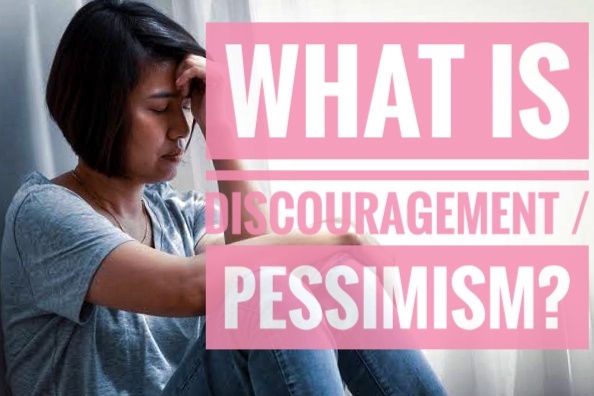Discouragement / pessimism
Feeling discouraged or pessimistic is an issue that is different from the three above, but often goes hand in hand with them. The methods for addressing it are the same as well. A history of poor social outcomes can lead to pessimism and discouragement about meeting your goals to improve your social situation. Feeling discouraged can then cause you to develop a number of counterproductive mind-sets that can hinder you even further. It can also lead to self-sabotaging behavior where you don’t try because you “know” you’ll fail anyway.
Here are some typical discouraging thoughts:
- “I’m too unlikable. There’s no point in trying anymore.”
- “I could go to that party, but it won’t get me anywhere, so I’ll take a pass.”
- “They’ll probably reject me, so I won’t bother talking to them.” “They seem bored by me. I’ll bow out of the conversation now to save us both time.”
- “He just gave me his number and said we should grab a beer sometime. It never works out when I follow up with someone, so I won’t bother.”
- “Maybe other awkward people can improve, but my set of issues is too much to overcome.”
The four related problems of shyness, social anxiety, insecurity, and discouragement need to be tackled directly. You should do some work on them before working on conversation or social life issues you want to fix. If you’re shy and insecure around people, you can indirectly become more confident by developing your conversation and friend-making skills (assuming they’re not already fine and your shyness just blocks them from coming out).
One warning though: If you attempt to practice your social skills but haven’t taken steps to address the counterproductive thinking at the core of your shyness and anxiety, you may end up worse off. You’ll put yourself in social situations but still see them as dangerous and high-stakes; if something goes wrong, you may come to inaccurate, disheartening conclusions about yourself and your hopes of improving.
You don’t have to get your thinking to a flawless place before you start working on your people skills, but your thoughts should be at a level where they won’t completely sabotage you either.

